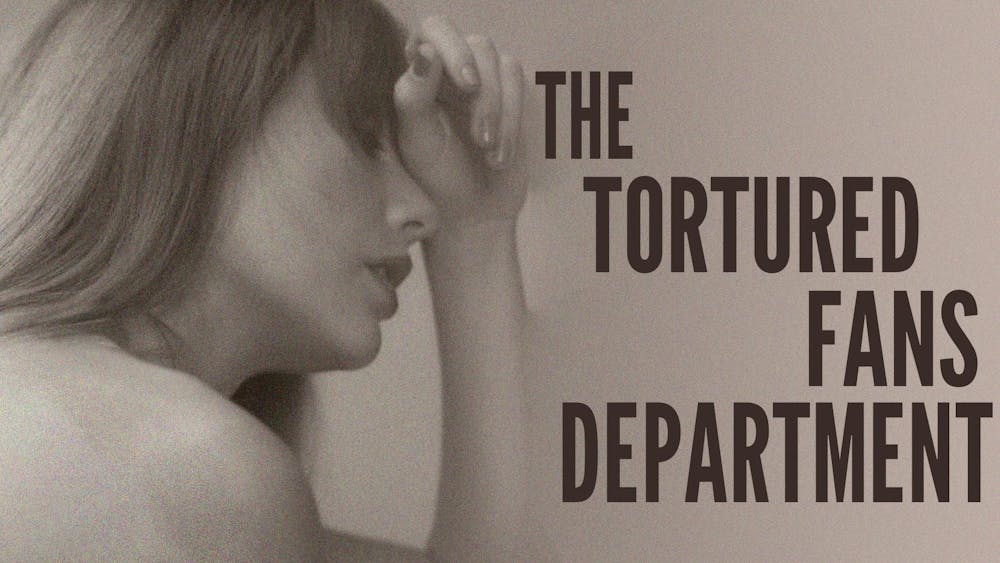I watched “Peter Pan: Live!” primarily to see if my doubts could be assuaged by the opening credits. The first shrill of the orchestra from Grumman Studios in Bethpage, New York led a whimsical rush of musical score lighting up a bird’s eye view of London in miniature, the camera panning seamlessly to the home of the Darling family. High expectations had been laid for this production since its first preview, but thankfully, they weren’t too high for the work of a sprinkle of fairy dust.
Peter Pan returned to NBC for the fourth time since 1955, but this time, he brought along additional songs from various revivals, entirely new songs and the restoration of a song that had been cut from the musical before its original Broadway premiere in 1954. The original 1954 Broadway production starred Mary Martin as Peter, commencing a continued tradition of females cast in the role, and Cyril Ritchard as Captain Hook.
The mindset of many tuning in to this year’s NBC live musical broadcast was largely divided on the basis of two elements: known-name casting and the potential to one-up last year’s “The Sound of Music.” If Carrie Underwood was the Achilles' heel of NBC’s casting, Christopher Walken (Captain Hook) was the same diagnosis on the other foot. The man possesses that coveted gift of subtle, dry humor acting capable of creating relatable characters out of a stereotype. Here, unfortunately, he is the stereotype.
As far as villains in children’s literature go, none are quite as classically vile and likable as Captain Hook. His name is enough to send shivers down the spines of the young and also prompt laughs from adults. Establishing and maintaining that equilibrium is demanding enough before the addition of the “musical” portion.
Every actor onstage must be a triple threat, but Hook needs to be the scene-stealer. Walken was a scene-stealer in that audiences were reduced to pushing him along like parents encouraging a baby to walk (“Go on, you can do it, come on”). He fell flat on his face for such a recognizable role. No amount of fairy dust could levitate the muscles in his face to form an expression beyond “Hey, I’m Christopher Walken.” As Saturday Night Live pointed out this weekend, Hook should still be able to carry a tune despite having one hand. The overall performance wasn’t Walken portraying the notorious Captain Hook. He was Captain Hook wearing the skin and acting with the mediocre energy of a seriously miscast Walken.
Speaking of the dear Captain, he is typically portrayed by the same actor as Mr. Darling, a mind-bending juxtaposition between the story’s dual motifs of imagination and reality. This Mr. Darling (Christian Borle) doubles not as Hook but as his dim-witted, pirate partner-in-crime, Mr. Smee. Smee and Hook’s slimy pirate league make for one of the show’s strengths, along with the fancy footwork of Peter Pan’s Lost Boys.
At least Mr. and Mrs. Darling (Kelli O’Hara) were talents pulled from the Great White Way, speaking and singing in sophisticated English accents. The children played pretend with heavily forced tongues bordering on Cockney. All of the premature plot unfolded predictably yet nostalgically, thanks in part to the tremendous Christmas-themed set. The cast was perfect in the molds they knew they had to fill as iconic characters, relishing in their chance to be the next generation’s Wendy (Taylor Louderman), John (Jake Lucas), Michael (John Allyn) and, of course, the Boy-Who-Never-Grew-Up (Allison Williams).
Williams, perhaps known best for her role as Marnie Michaels on HBO’s “Girls” (and for being the daughter of NBC’s “Nightly News” host Brian Williams), shines brightest as Peter Pan when the focus is not on her limited dancing skills but on the emotion she effectively emits during the broadcast’s quieter moments. Her best scenes include her gentle yet heart-tugging number, “When I Went Home,” and her reactions to internal pain, such as the clutching her heart in uncertainty about how to interpret the heartbreak of seeing Wendy, her brothers and the Lost Boys go back to London to grow up, never to return to Neverland.
Whatever sins I spotted and nitpicked, they were nearly forgotten by the production’s end scene, a bittersweet reunion between Peter and a grown-up Wendy (played by a refreshing Minnie Driver, also the show’s narrator). The emotional weight within these final minutes transcends the miscasting of Walken and the half-hearted delivery of lines.
Growing up in a physical sense is out of our hands. Maturing comes with acceptance of that physical transformation. Time in our world is measured in technical, practical and serious terms. However, Neverland knows no such measurements. It is a mixture of everything Peter Pan embodies: youth, joy and freedom. We all want to go to Neverland, if only to hold those memories which we will have forever, long past our maturity into adulthood. This is the ultimate theme of “Peter Pan,” and it is exactly what makes the end title a fulfilling conclusion to an otherwise offbeat production. You want to return to Neverland despite whatever elements of its setting and people you did not wholly appreciate.














